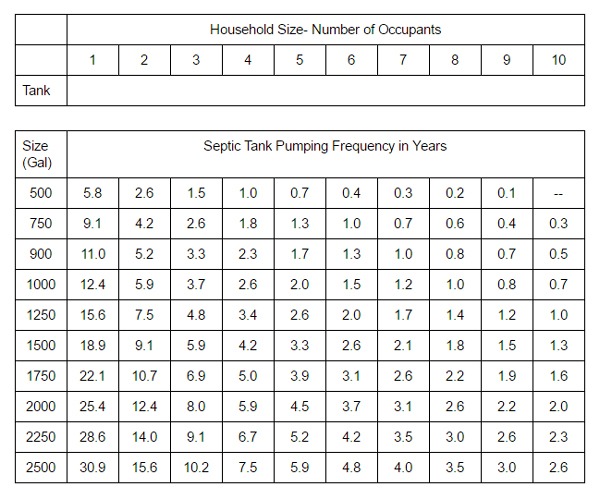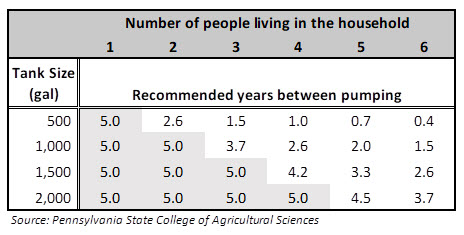In this article, we will discuss how often you should clean your septic tank and understand the importance of pumping frequency. We’ll explore factors such as household size, tank size, and usage that determine the cleaning interval. By the end of this article, you’ll have a better understanding of when and why you should schedule septic tank cleanings, ensuring the proper maintenance of your system.
What is a septic tank?
Definition of a septic tank
A septic tank is an underground wastewater treatment system commonly used in rural areas and homes that are not connected to a centralized sewer system. It is a large, watertight container made of concrete, fiberglass, or plastic that is buried in the ground.
Components of a septic tank
A typical septic tank consists of three main components: the inlet pipe, the septic tank itself, and the outlet pipe. The inlet pipe carries wastewater from the house into the septic tank, where it is held for a period of time to allow solid waste to settle to the bottom and grease and oils to rise to the top. The outlet pipe then carries the partially treated wastewater, known as effluent, out of the septic tank and into the drain field for further treatment.
How a septic tank works
Septic tanks work by harnessing the natural processes of anaerobic bacteria to break down and treat the wastewater that enters the tank. When wastewater enters the septic tank, the solid waste settles to the bottom, forming a layer of sludge, while the grease and oils float to the top, forming a layer of scum. This process, known as primary treatment, allows the effluent to flow out of the septic tank and into the drain field. In the drain field, the effluent is further treated by the natural filtration and absorption processes of the soil before it reenters the groundwater.
Importance of regular septic tank maintenance
Prevention of backups and clogs
Regular septic tank maintenance, including pumping, is crucial to prevent backups and clogs in your plumbing system. Over time, the solid waste and sludge that accumulates in the septic tank can build up and eventually block the pipes, leading to sewage backups in your home. These backups can cause extensive damage to your property and require costly repairs.
Avoiding costly repairs
Regular maintenance also helps avoid costly repairs to your septic system. If the solid waste and sludge in the septic tank are not pumped out on a regular basis, they can start to clog the drain field and cause it to fail. A failed drain field will require expensive repairs or even replacement, which can cost thousands of dollars.
Ensuring proper wastewater treatment
Proper maintenance of your septic tank is necessary to ensure that wastewater is treated effectively. If the solid waste and sludge in the septic tank are not removed regularly, they can disrupt the natural processes that occur in the tank and prevent proper treatment of the wastewater. This can lead to environmental contamination and health risks for you and your community.
Factors affecting septic tank pumping frequency
Size of the septic tank
The size of your septic tank is one of the main factors that determine how often it needs to be pumped. Larger septic tanks have a greater capacity to hold and treat wastewater, so they can generally go longer periods without being pumped. On the other hand, smaller septic tanks have a limited capacity and may require more frequent pumping.
Number of occupants
The number of people living in your home also affects the pumping frequency of your septic tank. A larger household generates more wastewater, which means the septic tank will fill up more quickly and need to be pumped more often.
Water usage and wastewater generation
The amount of water you use and the rate at which wastewater is generated also impact the pumping frequency of your septic tank. If you have high water usage habits, such as taking long showers or running the dishwasher frequently, your septic tank will fill up faster and require more frequent pumping.
Solid waste accumulation rate
The rate at which solid waste accumulates in your septic tank also affects the pumping frequency. The more solid waste that enters the tank, the faster it will fill up and need to be pumped. Factors such as the type of toilet paper used, the disposal of non-biodegradable materials, and the presence of a garbage disposal can all impact the rate of solid waste accumulation.
Recommended septic tank pumping frequency
General guidelines for pumping frequency
As a general guideline, septic tanks should be pumped every 3 to 5 years. This timeframe allows for the accumulation of enough solid waste and sludge to be removed without causing backups or clogs in the system. However, it is essential to remember that these are just general recommendations, and the actual pumping frequency may vary based on several factors.
Variations based on tank size and usage
If you have a larger septic tank or a smaller household, you may be able to extend the pumping frequency to every 5 to 7 years. On the other hand, if you have a smaller septic tank or a larger household, you may need to pump your tank every 2 to 3 years. It is crucial to consider the capacity of your septic tank and the rate at which wastewater is generated to determine the appropriate pumping frequency.
Considerations for high water usage households
For households with high water usage, such as those with large families or water-intensive activities like swimming pools or hot tubs, more frequent pumping may be necessary. Increased water usage leads to more wastewater entering the septic tank and faster filling of the tank. In such cases, it is recommended to have the septic tank pumped every 2 to 3 years to ensure proper functioning and prevent issues.
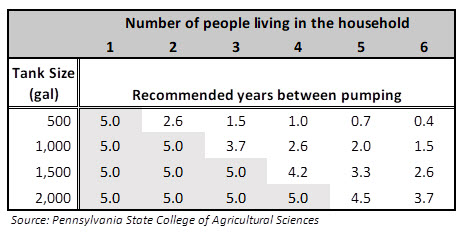
Signs that indicate the need for septic tank cleaning
Slow drains and toilets
One of the most common signs that your septic tank needs cleaning is slow drains and toilets. If you notice that water is draining slowly from your sinks, shower, or bathtub, it may be an indication that the septic tank is full and needs to be pumped. Similarly, if your toilets are slow to flush or do not flush properly, it may be a sign of a full septic tank.
Foul odors in the vicinity
Another sign that your septic tank needs cleaning is the presence of foul odors in the vicinity of the tank or drain field. If you detect a strong sewage smell coming from your yard or near the septic tank, it is a clear indication that the tank is full and needs immediate attention. Foul odors indicate that the septic tank is overflowing and that the sewage is not being properly treated or contained.
Gurgling sounds in plumbing fixtures
If you hear gurgling sounds coming from your plumbing fixtures, such as sinks, toilets, or showers, it may be a sign of a full septic tank. Gurgling sounds occur when air bubbles pass through the plumbing system due to a blockage or backup. A full septic tank can cause these blockages and backups, leading to gurgling sounds.
Pooling water or wet areas in the yard
Pooling water or wet areas in your yard, particularly near the septic tank or drain field, can indicate a problem with your septic system. When a septic tank is full, it can cause the wastewater to overflow and surface in the yard, creating wet or soggy areas. If you notice these signs, it is crucial to have your septic tank inspected and pumped as soon as possible to prevent further damage.
Process of septic tank cleaning
Septic tank inspection
The first step in the septic tank cleaning process is a thorough inspection of the tank and the entire septic system. A professional septic tank service will inspect the components of the tank, including the inlet and outlet pipes, baffles, and lids, to ensure everything is in proper working order. They will also check the drain field for any signs of damage or failure.
Pumping out the accumulated solids and sludge
Once the inspection is complete, the septic tank service will proceed to pump out the accumulated solids and sludge from the tank. This process involves inserting a hose into the tank and using a vacuum system to remove the waste. The waste is then transported and properly disposed of at a designated facility.
Proper disposal of the waste
Proper disposal of the waste is an essential aspect of septic tank cleaning. The waste removed from the septic tank is considered hazardous and must be disposed of according to local regulations. Professional septic tank services have the necessary permits and knowledge to handle and dispose of the waste safely and legally.
Tank cleaning and maintenance
After the solids and sludge have been removed from the septic tank, the tank is thoroughly cleaned and rinsed to remove any remaining debris or residue. The tank is then inspected again to ensure it is in good condition and ready for use. Additionally, any necessary repairs or maintenance can be performed during this time.
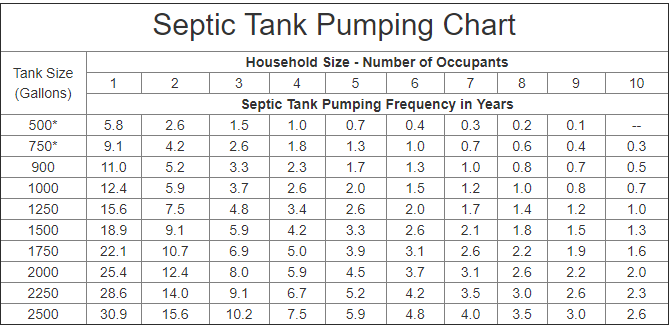
Costs associated with septic tank cleaning
Pumping service fees
The cost of septic tank cleaning can vary depending on various factors, such as the size of the tank, the location, and the complexity of the job. Generally, the cost can range from $200 to $500 or more for a typical residential septic tank pumping. However, it is important to get multiple quotes from different septic tank service providers to ensure you are getting a fair price.
Additional charges for repairs or replacements
In some cases, additional charges may be incurred if repairs or replacements are needed during the septic tank cleaning process. If any components of the septic system are damaged or malfunctioning, they may need to be repaired or replaced, which can add to the total cost of the service.
Potential savings through regular maintenance
While septic tank cleaning does come with a cost, it is important to recognize the potential savings that can be achieved through regular maintenance. By having your septic tank pumped on a routine basis, you can prevent costly repairs or replacements due to system failures. Investing in regular maintenance can save you thousands of dollars in the long run.
Professional vs. DIY septic tank cleaning
Advantages of hiring a professional
There are several advantages to hiring a professional septic tank service for your cleaning needs. Professionals have the knowledge and expertise to properly inspect and maintain your septic system, ensuring that it functions efficiently and effectively. They also have the necessary equipment to safely pump and dispose of the waste. Hiring a professional eliminates the risk of improper cleaning or damage to the tank or system.
Safety considerations
Septic tank cleaning involves coming into contact with hazardous waste materials, so safety should be a top priority. Professionals are trained to handle and dispose of these materials safely, minimizing the risk of contamination to you and the environment. Additionally, they have the proper protective gear and equipment to work in a safe and controlled manner.
Level of expertise and equipment
Professional septic tank services have the experience and training to perform thorough inspections, identify potential issues, and provide appropriate solutions. They also have access to specialized equipment and tools that may be needed to address specific problems. Hiring a professional ensures that your septic tank is cleaned and maintained to the highest standards.
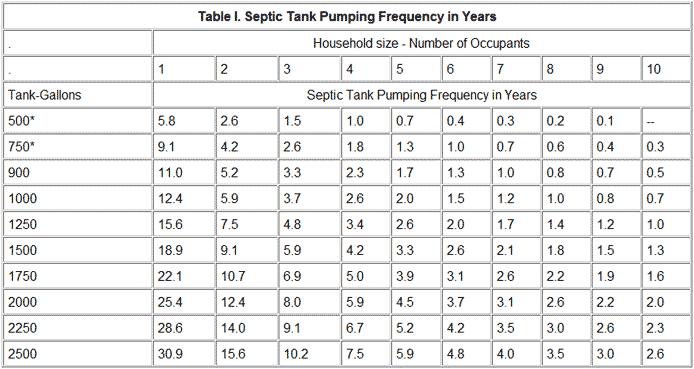
Tips for maintaining a healthy septic tank
Monitor water usage
One of the simplest ways to maintain a healthy septic tank is to monitor your water usage. Being mindful of how much water is used in your household can help prevent overloading the septic system and ensure that it operates efficiently. Water conservation practices, such as fixing leaky faucets, using low-flow fixtures, and spreading out water-intensive activities, can all contribute to maintaining a healthy septic tank.
Proper waste disposal
Proper waste disposal is essential to prevent clogs and backups in your septic system. Only flush toilet paper that is labeled as septic-safe, and avoid flushing non-biodegradable materials, such as paper towels, wipes, or feminine hygiene products. Additionally, be cautious of what goes down the kitchen sink, as oils, grease, and food scraps can clog the system.
Avoiding harsh chemicals
Harsh chemicals can disrupt the natural bacteria that help break down waste in your septic tank. Avoid using chemical drain cleaners or antibacterial cleaners that can kill the beneficial bacteria in the tank. Instead, opt for environmentally friendly cleaning products that are safe for septic systems.
Regular inspections and maintenance
Regular inspections and maintenance are key to keeping your septic tank in optimal condition. Schedule regular inspections with a professional septic tank service to identify any potential issues before they become major problems. Regular maintenance, including pumping out the accumulated solids and sludge, ensures that your septic system continues to function effectively.
Conclusion
Understanding the pumping frequency of your septic tank is crucial for maintaining a healthy and functional system. Regular septic tank maintenance, including pumping, prevents backups, clogs, and costly repairs. Factors such as tank size, number of occupants, water usage, and solid waste accumulation rate affect the pumping frequency. Signs such as slow drains, foul odors, gurgling sounds, and pooling water indicate the need for septic tank cleaning. The cleaning process involves inspection, pumping, waste disposal, and tank cleaning. Costs associated with septic tank cleaning include pumping service fees, potential repairs, and replacements. Hiring a professional for septic tank cleaning ensures safety and expertise. Tips for maintaining a healthy septic tank include monitoring water usage, proper waste disposal, avoiding harsh chemicals, and regular inspections and maintenance. By understanding the importance of septic tank pumping frequency and implementing regular maintenance, you can safeguard the environment, protect your health, and enjoy the long-term benefits of a properly maintained septic system.
